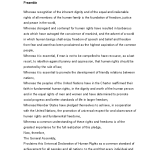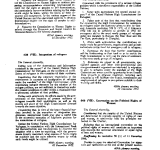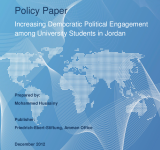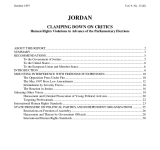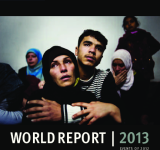freedom of expression
The purpose of this paper is to examine the issues that are limiting the democratic perception of Jordanian university students' political engagement in university life. The paper defines this issue as being directly linked with both students' freedom and representative bodies. It offers a description of the historical and legal backgrounds associated with students' political participation in Jordanian universities;; and examines the core issues associated with students' political participation. This paper also categorizes the various problems that limit students' participation;; including intervention of security offices in student affairs;; the weakness of student clubs;; and the election mechanisms of student elections. This paper also discusses the absence of a student body that unifies various Jordanian universities;; disciplinary regulations;; university violence;; and the inability to students to express their political thoughts within the university.
Since Jordan signed a peace treaty with Israel in 1994;; there has been growing tension between the Jordanian government and the independent press;; particularly the kingdom's small-circulation weekly newspapers. Journalists and editors have been arrested;; detained and prosecuted for violations of both the penal code and provisions of the press and publications law of 1993. By the count of one Jordanian weekly newspaper;; since the law went into effect sixty-two cases have been brought against journalists and editors;; the overwhelming majority of them with weekly newspapers. Faced with public opposition to normalization of relations with Israel;; frustration about the implementation of the Oslo Accords between Israel and the Palestinian Authority;; and popular discontent with the state of the economy and high rates of unemployment and underemployment;; Jordanian authorities have clearly signaled a growing discomfort with the exercise of freedom of expression by both individual critics and the press.
Freedom of expression and press freedom are essential conditions for the conduct of free and fair elections. But in the pre-election period;; Jordanian authorities have used the laws in force;; and other means such as threats and intimidation by internal security forces and government officials;; to restrict free expression;; including press freedom;; in violation of the International Covenant on Civil and Political Rights (ICCPR);; which Jordan has ratified. This report documents a series of actions taken by the government to tame the print media -- including the temporary closure of thirteen weekly newspapers in September -- and intimidate political critics into silence. Journalists and editors told Human Rights Watch that they have followed a stricter regime of self-censorship since the amendments to the press law were implemented in May 1997;; for fear of being subjected to heavy financial penalties mandated under the new law. In addition;; students;; writers;; and researchers have faced a variety of sanctions -- ranging from detention;; criminal prosecution;; and imprisonment to harassment;; job loss;; and blacklisting -- because they expressed views on political subjects that the government preferred remain off-limits. Such measures have created an atmosphere in which the right to free expression is perceived by many in Jordan as under siege.
This 23rd annual World Report summarizes human rights conditions in more than 90 countries and territories worldwide in 2012. It reflects extensive investigative work that Human Rights Watch staff has undertaken during the year;; often in close partnership with domestic human rights activists.
